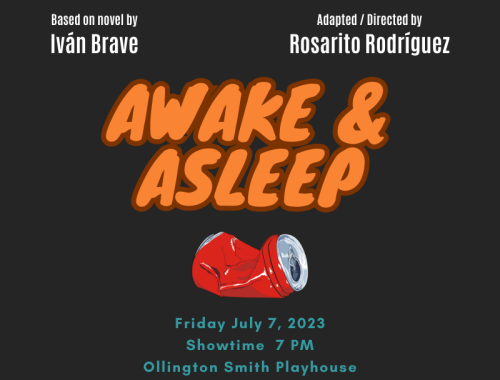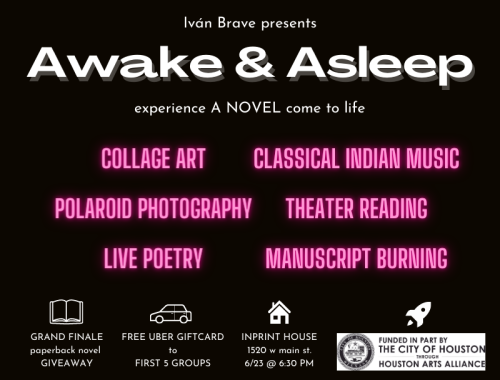Art: From NASA, an “earthrise.”
Project: This is the result of my two years at The New School, as a graduate student in the Master of fine arts program. Intention: to put everything I care about academically into one essay. Hope: that it help you in some small way, along your journey. Wish: for us to meet for an earthrise, discuss, and strike forward. Dream: dust and ashes.
For the full text of The Polyglot Manifesto, please click here.
- INTRODUCTION (DIATRIBE)
On the back of US minted pennies—depending on the year, above the Lincoln monument or on a crest—reads the phrase “E Pluribus Unum.” Every American brought up in public school is taught this Latin expression. It translates as, “Out of Many, One”; and serves as the guiding principle of our thesis, a discourse in diatribe. <A penny to continue.> Por favor.
THESIS PENNY
This essay proposes one thing: that writers write more. We should be encouraged to express the full force of our vocabularies, lexicons, and polyphonic identities. We should be exempt from external considerations, including those of the fickle reader, the rigid businessmen, and the haughty critic. Writers should turn to academia for refuge, should turn to artist retreats for sanctuaries, and should turn unto themselves for answers. This essay has no answers. This essay has only spit and fodder. Fodder for the artists and spit for those who with narrow minds limit creativity, put up stumbling blocks, respond “Thank you for submitting,” or straight tell us, “No.” To them, we say, “Yes!” Listen. There is a voice inside us all, a new American voice, a voice synonymous with multilingualism, an artifact of multiculturalism, the sound of the polyglot: furious, exquisite, shining, rough, tough, American, so American, too American, but today in doubt, today under attack. Assemble, polyglots!
We must write more, even more in our many languages, despite the deniers, naysayers and monomaniacal minds in their monolinguistic purgatory. Writer’s block is hell. Artistic freedom is heaven. Where are you? (Cross with the obol under your tongue.) Here are we: multilingual art finds itself today so ubiquitous—as dark and deep as the oceans that surround us—that the hymns of the polyglot have been taken for granted for decades here in America, perhaps longer, yet now call out as never before. This paper calls things for what there are, ergo manifesto. We define multilingual as anything polyglot—knowing or using more than one language—especially in text, even if knowing or using only one word, one sentence, one paragraph, or chapter, or a whole book in another language except for one word in English. (Out of many, one.) This very paragraph has been monolingual, but not gratuitously, for now. “Good morning, America.” Hark, and behold. “Hi, how are you?” Bonjour. Hola. Hallo. Ciao. Olá. Namaste. Salaam. Здравствуйте. <Take a penny.> De nada.
After the polyglot has been armed, rolling these papers into a megaphone, our aim is to broaden the term polyglot to include—that is, recruit—anyone willing to adopt a foreign language. You want to learn a new language? Write in it! We hereby reduce what is “foreign,” and expand our minds. “Dream is destiny.” Destiny is domestic. We will ourselves to personify unity, by embracing our differences. We bow in mutual respect for one another, for individuality, for uniqueness, without sacrificing understanding, or connection, or the genre that agrees to disagree. We sweat not to dam rivers, but to build bridges. Bamboozle us no more, chauvinist: English is not the official language of the United States any more than the name “America” came from an American. Damn those who are blind, deaf and dumb to the polyglot voice, to history. We lend ourselves to them in braille if we have to, in American Sign Language, in cartoons if we have to—the Polyglot Manifesto must seem a carnival of hand signs and double-entendres to them. It’s been this way for years. Nay? Convince me otherwise, fools, lest ye encounter your own barney within the ensuing dialogue. Till then, an outline to hold your hand. <Leave a penny.> Gracias.
First, we will examine three arguments against multilingual writing, consider their validity, and discuss their incompleteness, for though they have served us in the past, they will fail us moving forward.
Second, we will offer three arguments in favor of multilingual writing, which serve for fuel on our quest to express the new American voice.
Third, we will present a series of examples of multilingual art from around the word—in literature, music, and film—draw from their historical context, and analyze their effectiveness, all to suggest that there does exist a precedent for today’s polyglots who have always, and will always, create multilingual art, despite the gag and censor of prejudice. Its strong arm, the lingua franca, frankly limiting, can be defeated in an arm wrestle. <This is the game; the bet a penny; the winner defines “One,” and moves on to the next round.> Uno, dos, tres.
We will close this carnival match with a soliloquy, and a token of multilingual prose.
Busybodies may skip to this final section; but scholars read on; everyone else, we spit in your mouths! No coin for you. (Beware, the tone may change, but the mood stay the same.)
Let us begin. <Play.> Ándale.





Muy bueno Ivan! Me gusto mucho y me reafirma lo que siempre sentí en nuestras interesantes tardes de lenguaje. Adelante querido, vas por el camino correcto entre la filosofía y el lenguaje al que le sacas brillo cada vez que expones una idea. The Pot o La Caldera (como te gusta llamarme) te augura lo mejor!
🙂
Pingback: Stakes | iván BRAVE
Pingback: A book that helps with craft (and a project assignment) - iván BRAVE